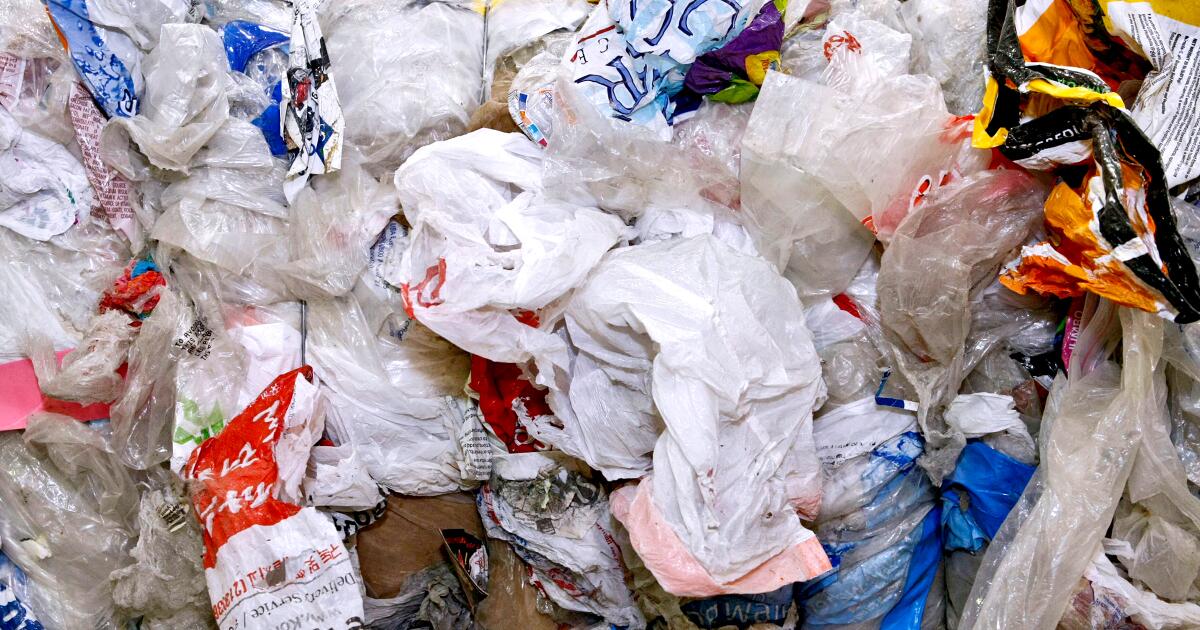It was a decade ago when California became the first state in the nation to ban single-use plastic bags, ushering in a wave of anti-plastic legislation from coast to coast.
But in the years after California seemingly kicked its plastic grocery sack habit, material recovery facilities and environmental activists noticed a peculiar trend: Plastic bag waste by weight was increasing to unprecedented levels.
According to a report by the consumer advocacy group CALPIRG, 157,385 tons of plastic bag waste was discarded in California the year the law was passed. By 2022, however, the tonnage of discarded plastic bags had skyrocketed to 231,072 — a 47% jump. Even accounting for an increase in population, the number rose from 4.08 tons per 1,000 people in 2014 to 5.89 tons per 1,000 people in 2022.
The problem, it turns out, was a section of the law that allowed grocery stores and large retailers to provide thicker, heavier-weight plastic bags to customers for the price of a dime.



The ‘nudges’ thing is contested. It’s basically from one book and the studies that used it mostly showed temporary single digit differences. Then there’s a lot of celebration that “the rate of change is picking up!” before long term effects fail to emerge. It falls smack dab in the center of the replication crisis.
A lot more direct action is required to make sizeable changes, like outreach campaigns and actually trying to change people’s minds/behavior.
Fair enough, thank you for clarifying! ‘replication crisis’ were the first words in my head as soon as I saw the top line of your comment haha.